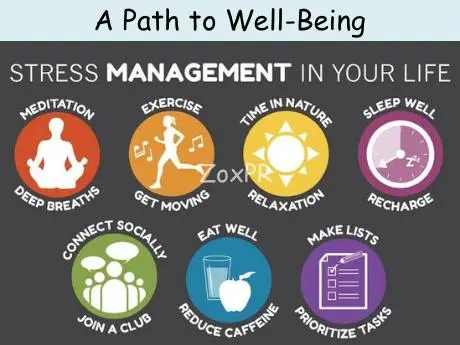A Path to Well-Being
In our fast-paced world, mental health and stress management have become crucial elements of our lives. The demands of work, personal life, and societal pressures often lead to stress, anxiety, and other mental health challenges. Prioritizing mental health and adopting effective stress management techniques is essential for a fulfilling life. This article explores key principles and strategies for maintaining mental well-being.
Table of Contents:
- Understanding Mental Health
- Identifying Stressors
- The Impact of Stress on Mental Health
- Stress Management Techniques
- The Role of Physical Health
- Seeking Professional Help
- Building a Support System
- Cultivating Resilience
- Mindfulness and Meditation
- Balancing Work and Life
- Self-Care Practices
1. Understanding Mental Health
Before delving into stress management, it’s important to have a clear understanding of mental health. Mental health encompasses emotional, psychological, and social well-being. It affects how we think, feel, and act. A positive mental state is vital for coping with life’s challenges.
2. Identifying Stressors
Recognizing stressors is the first step in managing stress. Common stressors include work pressures, financial worries, relationship problems, and health concerns. Identifying the sources of stress enables individuals to take targeted action.
3. The Impact of Stress on Mental Health
Stress can have profound effects on mental health. It may lead to anxiety disorders, depression, and other mental health issues. Prolonged stress can also affect physical health, underscoring the importance of addressing it promptly.
4. Stress Management Techniques
Effective stress management techniques can mitigate the impact of stress on mental health. These techniques include:
- Deep Breathing: Practice deep breathing exercises to calm the nervous system.
- Exercise: Regular physical activity releases endorphins, reducing stress.
- Mindfulness: Engage in mindfulness meditation to stay present and reduce anxiety.
- Time Management: Organize tasks and prioritize responsibilities to reduce stress.
- Relaxation Techniques: Use relaxation methods such as progressive muscle relaxation.
- Hobbies: Pursue hobbies and interests to unwind and reduce stress.
5. The Role of Physical Health
Physical health and mental health are closely intertwined. Eating a balanced diet, getting adequate sleep, and staying hydrated are essential for mental well-being. Proper nutrition fuels the brain and body, supporting stress management.
6. Seeking Professional Help
Sometimes, stress and mental health challenges require professional assistance. A mental health counselor or therapist can provide guidance, therapy, and coping strategies. There’s no shame in seeking help when needed.
7. Building a Support System
Social connections are fundamental for mental health. Building a support system of friends and family provides a safety net during tough times. They can offer emotional support and practical help when required.
8. Cultivating Resilience
Resilience is the ability to bounce back from adversity. Cultivating resilience involves developing a positive mindset, adapting to change, and learning from challenging experiences. Resilient individuals handle stress more effectively.
9. Mindfulness and Meditation
Mindfulness practices, including meditation, help individuals become more aware of their thoughts and emotions. They enable you to manage stress by staying in the present moment and reducing rumination.
10. Balancing Work and Life
Maintaining a work-life balance is crucial for mental health. Overworking and neglecting personal life can lead to burnout and chronic stress. Prioritize time for relaxation, hobbies, and quality time with loved ones.
11. Self-Care Practices
Self-care involves deliberate actions to care for your physical, mental, and emotional well-being. It includes activities like taking warm baths, reading, practicing hobbies, and spending time in nature.
Now, let’s summarize the key stress management techniques in a table for quick reference:
| Stress Management Techniques | Description |
|---|---|
| Deep Breathing | Calms the nervous system |
| Exercise | Releases endorphins, reducing stress |
| Mindfulness | Staying present and reducing anxiety |
| Time Management | Organizing tasks and prioritizing responsibilities |
| Relaxation Techniques | Progressive muscle relaxation and similar methods |
| Hobbies | Pursuing interests to unwind and reduce stress |
In conclusion, prioritizing mental health and adopting effective stress management techniques are vital for a fulfilling and balanced life. By understanding the impact of stress, implementing these strategies, and seeking professional help when necessary, individuals can better protect their mental well-being, leading to a happier and more fulfilling life. Remember, mental health is as important as physical health, and both deserve your attention and care.
Health Benefits in Stress Management
Stress management offers numerous health benefits, as it helps individuals cope with and reduce the negative impact of stress on both their physical and mental well-being. Here are some of the key health benefits of effective stress management:
- Reduced Risk of Chronic Diseases: Chronic stress is associated with an increased risk of various health issues, including heart disease, high blood pressure, and diabetes. By managing stress, individuals can lower their risk of these conditions.
- Improved Mental Health: Effective stress management can reduce the risk of anxiety and depression. It helps individuals better handle life’s challenges and maintain a positive outlook.
- Enhanced Immune System: Chronic stress weakens the immune system, making individuals more susceptible to illnesses. Reducing stress helps boost the immune response, making it easier to fight off infections.
- Improved Sleep: Chronic stress can disrupt sleep patterns and lead to insomnia. Managing stress can result in better sleep quality, which is essential for overall health and well-being.
- Pain Reduction: Stress can exacerbate chronic pain conditions. Effective stress management can reduce pain perception and improve the quality of life for those with chronic pain.
- Enhanced Respiratory Health: Stress can trigger or worsen respiratory conditions such as asthma. Managing stress may lead to better control of these conditions.
- Enhanced Skin Health: Stress can exacerbate skin conditions like acne and psoriasis. Stress management techniques may lead to clearer, healthier skin.
Source: ZoxPR

